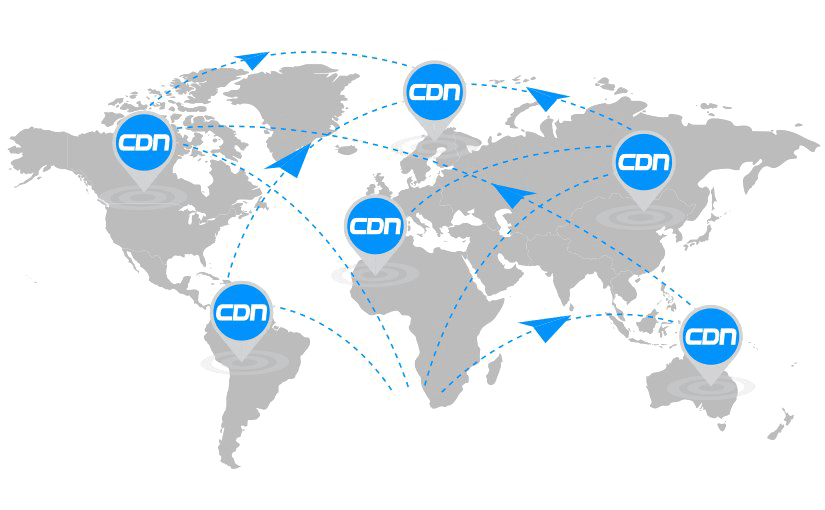
What is CDN (Content Delivery Network)
In simple terms, CDN is a network infrastructure with a distributed server base that is designed to reduce content delivery time.
That is, this is a group of specially configured servers located in different geopoints. Servers act as nodes that allow content to be quickly downloaded to nearby users. Thus, an extensive CDN network with servers located nearby can significantly reduce the load time of remote sites.
The usual scheme for transferring data on the Internet (without using a CDN) is implemented in such a way that all users receive information directly from a specific server, which can be located arbitrarily far away.
CDN, on the other hand, allows you to download content immediately, literally within a few seconds. It does not matter if the source server (origin – remember the terms) is in London, Cairo or Buenos Aires. In order to see a more detailed analysis of the CDN, we recommend that you look at Akamai’s page at – https://www.akamai.com/our-thinking/cdn/what-is-a-cdn.
However, one must understand that the CDN provides protection, but it has vulnerabilities.
DDoS – attacks on the CDN
First, let’s understand what DDoS attacks are. Distributed Denial of Service is a type of cyber attack used to disrupt the server infrastructure of a site or service by sending a huge number of requests. In simple terms, the essence of a DDoS attack is to suppress the operation of the server with the amount of external traffic that it cannot handle. DDoS affects various platforms, including websites, game servers, banking services, government online structures and information portals. If you want to protect your site, application or API, we strongly recommend that you contact Akamai, you can learn more about them at – https://www.akamai.com/products/app-and-api-protector.
A CDN can absorb large-scale attacks, making CDN data center overload a difficult task. The network has complete control over the stored data and user access to it. The data is also protected using tests for recognition of people and machines (Captcha) or other methods of user authentication.
Unfortunately, such measures create a false sense of security. CDNs are not designed or equipped to provide full protection against DoS/DDoS attacks, and are only capable of protecting data that is stored within such networks; and the data in the customer’s data center remains unprotected. If you are attacked, you need to defend yourself as quickly as possible – immediately choose a DDoS protection service, set up traffic proxying, such as Akamai. If your CDN network is in danger, then Akamai has solutions for ecommerce.
